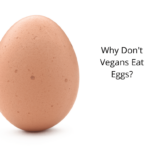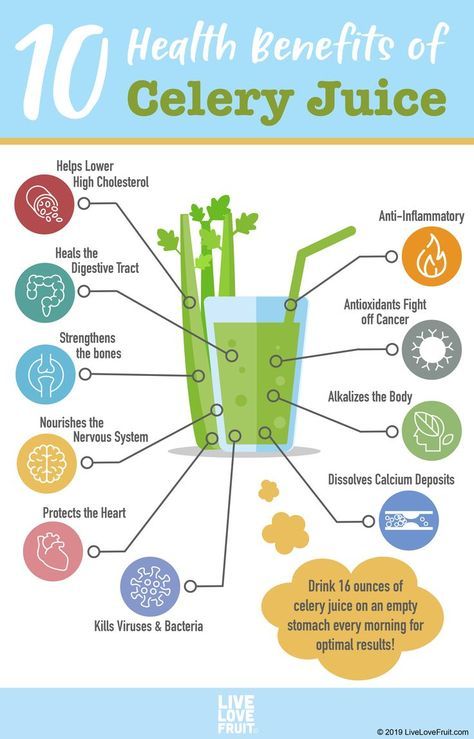Beginners Guides
Why Are Humans Meant to Eat Meat?
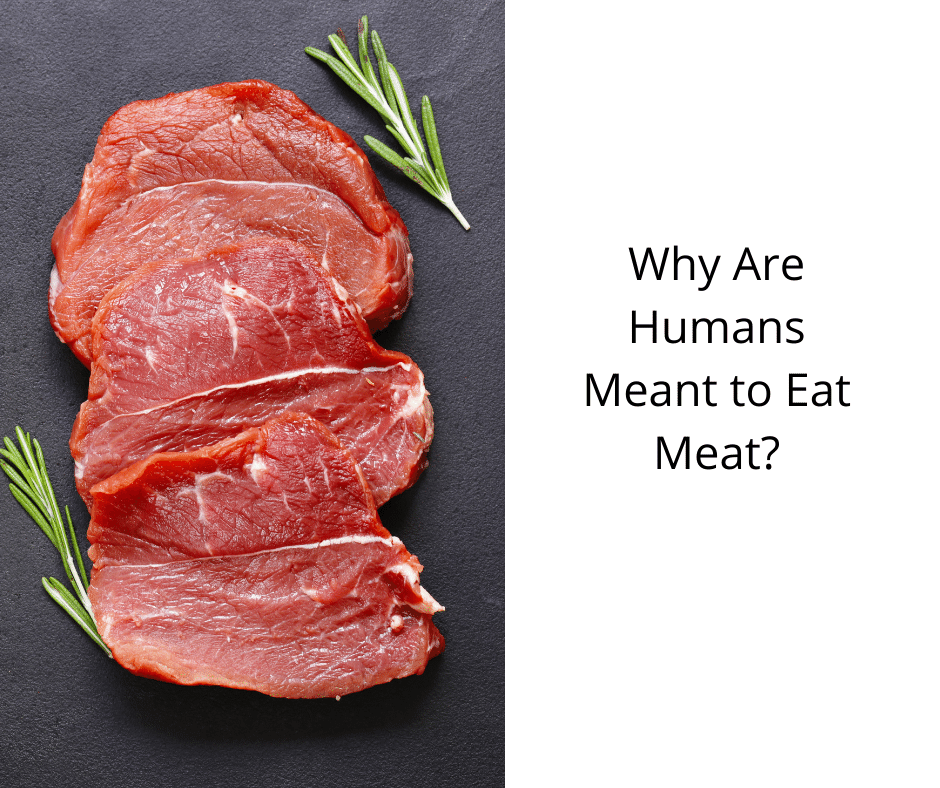
Indeed, adopting a diet centered around plants can offer health benefits, yet there are numerous arguments in favor of consuming meat. For one, meat tends to be affordable and readily accessible. Despite the disturbing reality of inhumane factory farming and the possibility that meat consumption could harm health, it remains a popular choice. Moreover, the consumption of meat is linked to the transmission of lethal diseases across various social and economic groups. Furthermore, the adverse impacts of a meat-heavy diet are particularly profound in developing regions of Africa and Asia, where the detrimental effects on local communities due to such dietary habits are significant.
Plant-Based Diets Are Better for Health
Research shows that a plant-based diet has several health benefits, including reduced risk of cancer, improved energy metabolism and gut health. It may even help reduce your risk of diabetes and heart disease. It has also been linked to fewer health risks, such as obesity. It’s worth mentioning that plant-based diets also tend to reduce the negative impact on the environment.
A diet that emphasizes fruits, and vegetables, and avoids processed foods is the best for your health. Processed foods lack nutrients and have a high glycemic index, which increases the risk of developing diabetes. On the other hand, those who consume a plant-based diet have a lower risk of developing Type 2 diabetes, and the risk of developing chronic kidney disease is lower.
Plant-based diets can help maintain a healthy weight which is important to reduce the risk of developing breast cancer. Excess weight leads to hormonal imbalance and inflammation. Being overweight increases your risk of 12 types of cancers. Furthermore, a plant-based diet eliminates foods that cause weight gain and weight loss, and can help you lose weight.
Plant-based meats are also delicious and healthier for animals. There are many new meat substitutes on the market. The Impossible Burger, for example, uses modified plant proteins and coconut oil to mimic the taste of beef. These meat alternatives are growing in popularity even though they lack whole foods.
Many Food Cultures Include Meat as An Integral Part
Many food cultures around the globe consider meat an integral part of their cuisine. It has symbolic meanings and is a staple part of festive meals. However, some cultures do not eat meat and other animal products. For example, pork is banned in Islam, and certain castes in Hinduism follow a strict vegetarian diet. Furthermore, each culture has different rules and traditions for what kind of meat is acceptable and not acceptable.
Although meat is a staple food in many cultures, ethical concerns surround its consumption. Some people object to killing animals, and others object to the agricultural practices that produce it. Other reasons include animal rights and environmental ethics as well as the aversion of inflicting pain upon sentient beings. Additionally, some people abstain from eating meat or animal products because of religious or cultural beliefs.
Hypertension and colorectal disease have been linked to high salt levels in processed meat products. Other studies have found that some meat products contain antihypertensive peptides that counteract the effects of excessive salt intake on blood pressure. However, in the United Kingdom, the amount of salt in processed meat has steadily decreased over the past few decades. While the lower levels of salt in meat may be beneficial, it may also be harmful to the quality of the meat products. Unsaturated fats are more prone to oxidation and can lead to undesirable meat products.
ReMI’s report draws on the current scientific understanding of pork value chains. It also highlights potential challenges and opportunities for the industry as well as active areas, targets and targets to promote sustainable meat manufacturing. The report acknowledges that meat is an integral component of many food cultures and a valuable source of nutrition. However, it also outlines the potential challenges and opportunities for the industry, action areas, and targets to promote sustainable meat production.
It Allows Us to Develop Large Brains
It is generally assumed that the size of our brains is related to the amount of meat we eat. However, this is not necessarily the case. Eating meat provides us with an abundance of calories. This has led to an increase in brain size over time. Homo erectus, our ancestors, had larger brains than chimpanzees. And the earliest humans probably ate a lot more meat than chimpanzees did.
We also get many essential nutrients from eating meat. This includes zinc, iron, vitamin B12, and fatty acids. Although many of these nutrients can be obtained from plants, they are often in smaller quantities or in different forms. For instance, red meat contains hemoglobin iron, which is easier to absorb than other forms of iron. On the other hand, plants contain compounds called phytates, which block iron absorption.
The evolution of large brains is also linked to eating meat. The earliest humans began eating meat about 1.5 million years ago. They ate large quantities of meat, which provided them with large amounts of calories, which is essential for brain development. Moreover, meat does not require the development of a large intestinal tract.
Evolution is complex and involves social, nutritional, and evolutionary forces. It led to an increase in brain size. The high levels of encephalization in humans and other primate species indicate higher sociality and behavioral complexity levels. Combining these factors with exploiting high-quality foods will provide the metabolic fuel needed to develop large brains.
It’s Relatively Cheap
In the last decade, meat consumption per capita has increased in the developed world. This is partly because animal flesh is inexpensive and readily available. Factory farming practices, notorious for their cruelty, have also made this type of food accessible to many people, regardless of their socioeconomic status. Unfortunately, this trend has also spilled over to less developed parts of the world, where people eat meat in increasingly unhealthy ways.
It’s Widely Available
Meat is an important food source for humans, and the world’s most common type of meat is pork. Although many people eat pork products such as bacon, sausage, or pork chops, these aren’t the only ones made from swine. Other products made from pork byproducts include insulin for diabetes control, valves to aid in human heart surgery, and gelatin. Pork products are also essential components of antifreeze, floor waxes, crayons, fertilizer, and fertilizer.
The rate of meat consumption varies significantly across countries, but it’s high in high-income countries such as Australia, which consumes an average of 80 kilograms of meat per person. In contrast, meat consumption changes in higher-income nations have been slower than in low-income ones. For example, in Africa, meat consumption is deficient, with some countries only consuming 10 kilograms per person. Higher-income nations, like the United States, down 60 to 70 kilograms per person.
The word meat refers to the tissues and organs of animals, which are rich in essential nutrients. While pork consumption is declining in many areas of the world, chicken consumption continues to grow faster than any other type of meat. Chicken flesh is delicious and nutritious, and it’s easy to get.
It’s Not Necessary to Keep Us Healthy
The debate about whether eating meat is necessary to keep us healthy is a complex and controversial one. The arguments are often based on health and environmental factors, and few people have a universally-accepted position. Some people consider meat a good source of protein and other nutrients. Others believe that meat causes disease and contributes to environmental pollution.
The human body needs meat to provide essential nutrients, including protein, vitamins, and fat. These nutrients are vital for maintaining a healthy body. It is necessary to eat meat in moderation. Research suggests it is more beneficial to eat moderate meat than to cut back.
A recent study compared people who eat meat with those who do not. It was found that meat-eaters were more likely to develop depression, anxiety, or self-harm than those who ate meat. It also found that vegetarians were more likely to develop Pellagra, a type of protein-calorie malnutrition.
Many cultural and dietary factors affect our willingness to eat meat. In some cultures, meat is an integral part of the diet. Depending on location, it may even be a central part of a group’s identity. Understanding these influences can help you eat healthily and connect with your roots.
Hi, I’m Jenna. I’m the Editor in Chief of vegan freaks. We’re a website dedicated to promoting veganism and animal rights. We all go vegan for different reasons, but we all believe it’s the best way to live – for our health, the environment, and the animals.
We’re not perfect, but we try our best to live ethically and compassionately. We hope that we can inspire others to do the same by sharing our stories and recipes. Creating vegan food is our way of showing the world that you can have your cake and eat it, too – without harming any animals.
We believe in living compassionately, mindfully, and healthily, and we hope to inspire others to do the same.
Beginners Guides
Is Chicken Bad For You?
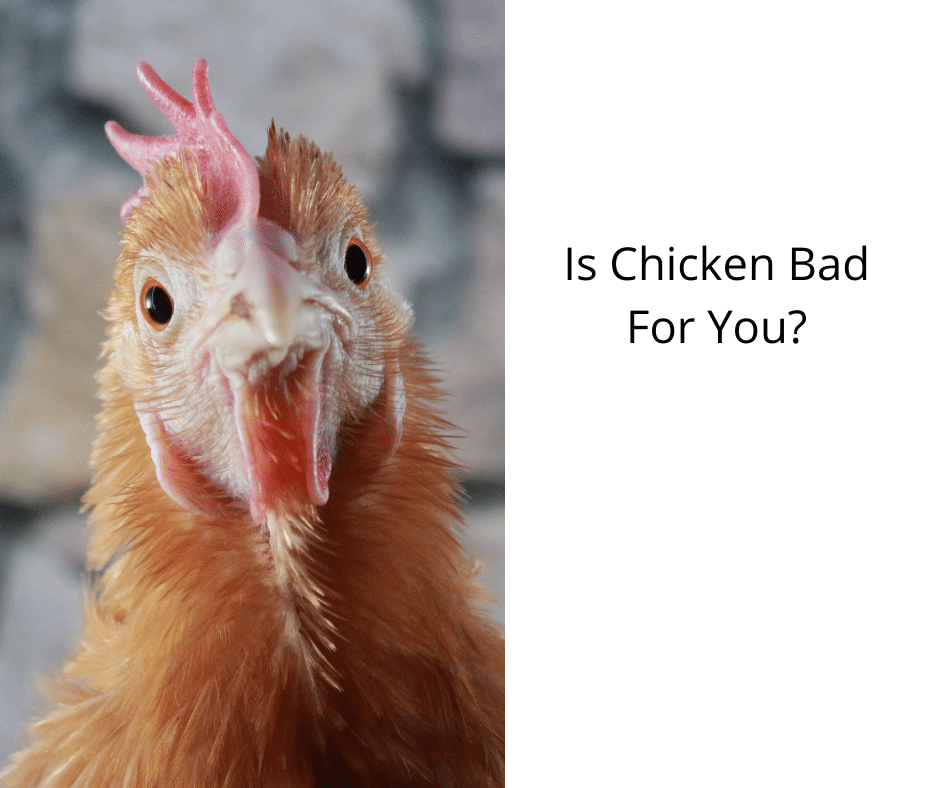
Chicken skin is beneficial for your health as it retains moisture and taste within the meat. It contains a high level of unsaturated fats, which are good for the health of your heart. Moreover, to minimize the danger of foodborne illnesses, it is essential to cook chicken until it reaches a minimum internal temperature of 165 degrees Fahrenheit. Properly cooked chicken has lower levels of saturated fat than when it is raw.
Skin on Chicken Helps to Keep It Moist and Flavorful
The skin of chicken is a great way to keep it moist and flavorful. When roasting or broiling chicken, leave the skin on. This will ensure that the meat remains moist and tender. Season the chicken skin with flaky or kosher sea salt. You can rub salt into the skin but not too hard as it can cause skin to become irritated. You can also use a paper towel to dab the chicken before cooking.
The skin of chicken can be left on for a heart-healthy unsaturated oil. These fats reduce your cholesterol and lower your risk of developing heart disease. They also keep the chicken moist, which reduces your need for salt and sugar. Eating chicken skin as part of a balanced diet may also help you lose weight, since it has just 50 calories. That’s a relatively small amount when compared to the calories from a bag of cookies.
The skin of chicken will keep it moist and flavorful, while reducing its fat. It also contains collagen, which is good for your skin. You don’t have to remove the skin from your chicken. Instead, you can use boneless, skinless thighs. You can also use the skin to make a tasty sandwich or canape. In addition, you can season the skin with your favorite spices. Fresh herbs, earthy spices, or citrus zest are all great options.
If you’re worried about the calories or the fat content, don’t leave the skin on your chicken. It is rich in nutrients and fats that will keep your chicken moist throughout the cooking process. Besides, it helps add a hint of flavor to the dish. Cooking chicken breasts with the skin on is also great for flavor and moisture retention. You can add salt to the chicken to add flavor and moisture to the meat. The skin will draw moisture to the surface of the meat, which will then be released into the meat as the chicken ages.
Chicken Skin Is Rich in Unsaturated Fats that Are Good for The Heart
Cooking chicken skin is a great way to increase your heart-healthy fat intake. Unsaturated fat is about 40% of chicken skin, making it a healthy source of fat. This type of fat is beneficial to your health because it lowers cholesterol and blood pressure. It also contains healthy amounts of oleic acid which supports the immune system as well as hormone production. The downside of cooking chicken skin is that it can make the meat taste dry and bland. Many people will add excessive salt to make the meat taste better, but this is not healthy.
Most chicken skin is rich in omega-3 fatty acids, the healthiest form of fat for the body. These fatty acids can help improve cholesterol levels and may even lower the risk of heart disease in older adults. You can also get these essential fats from avocados, nuts, and oily fish.
Chicken skin is rich in polyunsaturated fats, which is unlike beef and pork. Studies have shown that lower levels of LDL cholesterol can be achieved by using polyunsaturated fats. There are still questions about the lipid composition of chicken fat.
Although most chicken skin is high in polyunsaturated oils, they are not as good as butter. Although they do contain saturated fat, they are still good sources. Butter, peanut butter, and coconut oil are all high in saturated fat, so chicken skin is not as nutritious as butter, peanuts and coconut oil. They are also high in calories.
Salmonella Can Cause Food Poisoning in Chicken
Salmonella bacteria are present in many types of food, including chicken and eggs. The bacteria can be killed by heat but undercooked foods can still cause food poisoning. It is especially important to cook eggs thoroughly to kill Salmonella bacteria. Eggs should be cooked to 165 degrees to prevent Salmonella contamination. Salmonella contamination can cause serious illness that can last up seven days if eggs are not cooked properly.
Two Salmonella outbreaks in the UK have been reported recently. One was traced to a major poultry meat supplier, Cranswick Country Foods. The company has recalled a small number of cooked chicken products and is currently investigating the source. Consumers are advised to avoid the recalled products, and to return them for a full reimbursement. Salmonella is known to cause serious illness and has been linked to food poisoning in several cases.
Most people who contract salmonella are able to recover within four to seven working days. However, serious cases may need hospitalization. In these cases, antibiotics may need to be administered. In some cases, Salmonella bacteria may travel to other organs, causing life-threatening illnesses. Although it is not usually life-threatening, people with weak immune system and the elderly should see their doctor immediately if they experience diarrhea or fever. A stool sample is recommended to confirm if you have Salmonella.
People with weakened immune systems are especially vulnerable to chicken food poisoning. It is possible to contract it from people who work with raw chicken. Although the symptoms of Salmonella in chicken are relatively mild, serious cases require medical attention. Most cases present within 48 hours after eating contaminated chicken.
Cooking Chicken until Internal Temperature Reaches 165 F
Cooking chicken to an internal temperature of 165 F is not only bad for you, but it can also result in food poisoning. Undercooked chicken is contaminated with Salmonella bacteria, which can cause diarrhea and even typhoid fever. This bacteria is destroyed by 165°F cooking, which renders the meat dry.
Although 165 degrees Fahrenheit is the safest internal temperature for chicken, different types of chicken need different cooking times. Stuffed chicken will add variety to your meals and reduce oil consumption. The USDA Under Secretary of Food Safety has requested a committee be established to develop a standard minimum cooking temperature for poultry. This is to ensure the safety of food and prevent foodborne illnesses.
It is important to cook chicken to 165 degrees F to kill bacteria and keep it tender. Bacteria can multiply quickly between 40 and 140 degrees. However, they stop growing once chicken reaches 165 degrees F to kill bacteria and keep it tender.
A meat thermometer is a useful tool for checking the temperature of chicken. The thermometer should be placed in thickest part of chicken and not in fat, bone, or gristle. The chicken is ready when the instant-read meat thermometer registers at least 165 degrees F. If the juices run clear when you insert the thermometer into the meat, you should return the chicken to the heat source.
To ensure tender and delicious chicken breasts, cook them to an internal temperature of 160 degrees F. If you can’t cook chicken to this temperature, roast the chicken at 375 degrees for twenty minutes per pound to ensure a crispy skin. To allow the juices to absorb, you should let the chicken rest for at most five minutes before serving.
Avoid Undercooked Chicken
Undercooked chicken can cause severe food poisoning. This includes diarrhea, vomiting, and even fever. Typhoid fever can occur in severe cases. Symptoms may appear immediately after eating the chicken or can take several days to develop. This can be very dangerous, especially if your immune system is weak.
Undercooked chicken can also cause Campylobacter, a bacterium that causes diarrhea, fever, and vomiting. If you are served undercooked chicken, you should immediately send it back to the restaurant. If you do not feel comfortable returning the dish to the restaurant, make sure you freeze the leftovers.
A food thermometer is the best way to determine if your chicken has been cooked. A fully cooked chicken should reach 165 degrees Fahrenheit. If the chicken is still pink it is undercooked. Undercooked chicken can also contain harmful bacteria, including salmonella. These bacteria can cause gastroenteritis, enteric fever, and even typhoid, among other illnesses.

You should never eat undercooked chicken. Bacteria in undercooked chicken can cause food poisoning and may even require antibiotics. It can also spread through the bloodstream to other parts of your body, especially if you have weakened immunity or are immunocompromised. That’s why experts recommend cooking chicken to 165 degrees Fahrenheit. A meat thermometer is essential to get an accurate reading.
If you’re cooking your chicken at home, make sure to follow the package instructions. Towards the end of cooking, use a meat thermometer and check the internal temperature of your chicken. It’s important to be aware of the dangers of undercooked chicken, especially for old people and children. If you notice diarrhea or other symptoms, visit the nearest hospital immediately.
Hi, I’m Jenna. I’m the Editor in Chief of vegan freaks. We’re a website dedicated to promoting veganism and animal rights. We all go vegan for different reasons, but we all believe it’s the best way to live – for our health, the environment, and the animals.
We’re not perfect, but we try our best to live ethically and compassionately. We hope that we can inspire others to do the same by sharing our stories and recipes. Creating vegan food is our way of showing the world that you can have your cake and eat it, too – without harming any animals.
We believe in living compassionately, mindfully, and healthily, and we hope to inspire others to do the same.
Beginners Guides
Stretching Vegan Leather

Should you be interested in expanding the size of your vegan leather shoes, belts, and accessories, you might be curious about how to achieve this goal. There are several straightforward methods that can aid in stretching your vegan leather products. By applying these methods, you can preserve the integrity of your leather items, ensuring they remain in excellent condition.
Stretching faux leather
There are two options when you want to make vegan leather boots. You have two options when it comes to stretching vegan leather boots. The first is to use a boot tree and an extender. These tools allow you to stretch one section of your boot at a time rather than the entire shoe. To soften the material, you can also use a hairdryer.
You can also use a spray specifically designed for leather. The leather will be stretched and made more flexible by the spray. This spray will not work on shoes made of plastic, but it is effective on leather. For best results, try a spray that is designed for leather. But be careful not to use the spray on plastic shoes.
You can make your own boot-stretching solution if you are unable to find a commercial product. You can mix equal amounts of rubbing alcohol with water. Apply the solution to the interior section of the footwear and gently rub in a circular motion. This will stretch the faux-leather around the calf.
Stretching vegan leather
Stretching vegan leather shoes is an easy way to make them fit better. Wrap the strap around something to stretch it. You can also use a watch stand or a table to lift the watch from the table and allow it to stretch overnight. If you live in a dry environment, this method is highly recommended.
You can stretch faux leather but you must be careful not overstretch. This can cause cracks in the leather and cause it to break. This can also cause the faux leather to stretch out less than genuine leather. While it may not stretch out as much as genuine leather, stretching faux leather will soften it up over time.
Faux leather boots in stretchable style
Balm conditioner can be used to stretch faux leather boots that are too tight. This will make the leather stretchier and easier to slip your foot into. While the term “balm conditioner” is frowned upon today, it has proven to be an effective way to stretch tight shoes. In addition to ensuring your feet stay comfortable, this method will also prevent common foot problems. To stretch faux leather boots, use technique number 5.
Once you’ve completed the steps above, you should leave the shoes overnight to stretch the material without damaging it. It is important to take your time and not rush the process. If the shoes don’t stretch enough, repeat the process the next day.
Stretching faux leather belts
When you’re looking for ways to stretch faux leather belts, you may be wondering how to do it safely and easily. There are a few simple methods that will help you achieve the perfect result. To soften leather fibers, one method is to use rubbing alcohol and water. Once this process is completed, the strap should be treated with leather conditioner.
Use a small amount of conditioner or oil to coat your belt. Too much of either oil or conditioner can cause your belt to become too stretched. Always use small amounts and rub the leather evenly. When it’s time to wear your belt, make sure it dries thoroughly.
Straps made of faux leather
You can stretch your new watch strap if it is too tight. This simple process will prevent your watch strap from getting tight over time. It is important to wear the strap regularly. After a few weeks, your leather watch strap will start to break in. It will become looser and more comfortable as it wears. The next step is to stretch it by bending it back and forth.
A hair dryer can be used to stretch leather straps. Just remember not to use too much heat or you might damage the strap. The strap should be stretched after a few days. To make it more flexible, you can lubricate and condition the strap. This will soften the leather fibers and make it stretch faster.
Hi, I’m Jenna. I’m the Editor in Chief of vegan freaks. We’re a website dedicated to promoting veganism and animal rights. We all go vegan for different reasons, but we all believe it’s the best way to live – for our health, the environment, and the animals.
We’re not perfect, but we try our best to live ethically and compassionately. We hope that we can inspire others to do the same by sharing our stories and recipes. Creating vegan food is our way of showing the world that you can have your cake and eat it, too – without harming any animals.
We believe in living compassionately, mindfully, and healthily, and we hope to inspire others to do the same.
Beginners Guides
How to Clean Tesla Vegan Leather Seats

If you’re curious about the top strategies for maintaining the pristine appearance of your Tesla’s vegan leather seats, you’re definitely not by yourself. Various tactics exist to keep your car’s leather upholstery in immaculate condition. A simple yet effective routine is to vacuum the seats weekly, helping to eliminate dust and debris. For tackling stains, consider employing a cleaner designed especially for leather and upholstery. Such cleaners excel at erasing marks left by fingerprints, sweat, and body oils. They are equally effective in removing makeup and fingerprints.
Reverse osmosis water
Tesla has a forum where owners recommend using distilled water to clean the seats and a microfiber cloth. Another option is to use reverse osmosis water, which is filtered using special filtration. It is however not as effective as other cleaning products. Reverse osmosis water, for example, is not as effective than a dirt remover. A better option is to use a cleaner cleaning agent to clean the seats. To prevent soiling, you can also apply a sealant to the seats.
Another way to clean the Tesla vegan leather seat is to use a mixture of vinegar and water. Baking soda can also be used. These ingredients are gentle, but they work well. Lysol cleaning products should not be used on vegan leather seats as they can cause damage.
If you don’t want to use a chemical cleaner, you can use a non-detergent soap to clean the seats. Castile soap is another option. It is free of detergents and safe to use on leather seats.
Non-detergent soap
You need a non-detergent soap and a damp cloth to clean your Tesla vegan leather seats. Tap water will leave a residue on your leather seats and dry them out. This problem can be avoided by using distilled water.
Next, clean your seats with a microfiber cloth and non-detergent soap. Avoid using Lysol cleaning solutions since they contain ammonium and ethanol, which can damage the seats. A good non-detergent soap will remove stubborn dirt and soap residue that are common to vegan leather. You can prevent further stains by sealing your seats with an interior protection product.
While you can spot clean your seats daily, it is better to give them a thorough cleaning once or twice a year. Regular vacuuming can also help preserve the condition of your seat. You can use an upholstery or leather cleaner after cleaning to treat stains. It will remove body oils, sweat stains, fingerprints, and makeup.
Colourlock leather care kit
Tesla vegan leather seats require special care to keep them looking good. Regular cleaning with a non-detergent soap is important. It is also important to use a leather cleaner and conditioning kit. These products will remove stains and dye transfer and help maintain the seats’ beauty. These products can be purchased at local grocery stores or online.
The interior of a Tesla is known for its sleek design. The interior is also made of vegan leather seats that can be tricky to maintain. You should clean the seats with a soft cloth and a nondetergent soap. You can also clean them with a special spray applied directly to a cloth. These sprays are safe to use and can be stored in the glovebox or center console.
Using baby wipes is another effective way to clean the white seats. Baby wipes are soft and do not contain aggressive chemicals. It is also better to use a cleaning solution that is not foaming and can be applied in circular motions. If the white seats are particularly difficult to clean, you can apply a solution containing isopropyl alcohol.
Baby wipes
Baby wipes are a great way to clean your Tesla’s vegan leather seats without damaging them. They are safe, affordable, and easy to use. They do not contain chemicals, which is a big plus as they aren’t harmful to the seat.
Before you use baby wipes on the seats, make sure you test for stains. To clean stains, you should use mild soap and water. These products are safe for most leather types, but they can cause damage to delicate materials.
You can then use baby wipes to clean your seats after you have scrubbed them. These products contain abrasives so be careful. These products should be used in combination with water, soft pressure, and water to ensure that your Tesla’s seats are not damaged. After cleaning the seats, apply an interior protector.
Hi, I’m Jenna. I’m the Editor in Chief of vegan freaks. We’re a website dedicated to promoting veganism and animal rights. We all go vegan for different reasons, but we all believe it’s the best way to live – for our health, the environment, and the animals.
We’re not perfect, but we try our best to live ethically and compassionately. We hope that we can inspire others to do the same by sharing our stories and recipes. Creating vegan food is our way of showing the world that you can have your cake and eat it, too – without harming any animals.
We believe in living compassionately, mindfully, and healthily, and we hope to inspire others to do the same.
-

 Vegan3 months ago
Vegan3 months agoIf Beets Are Soft Are They Bad?
-

 Vegan3 months ago
Vegan3 months agoWhy Do Raw Beets Irritate My Throat?
-
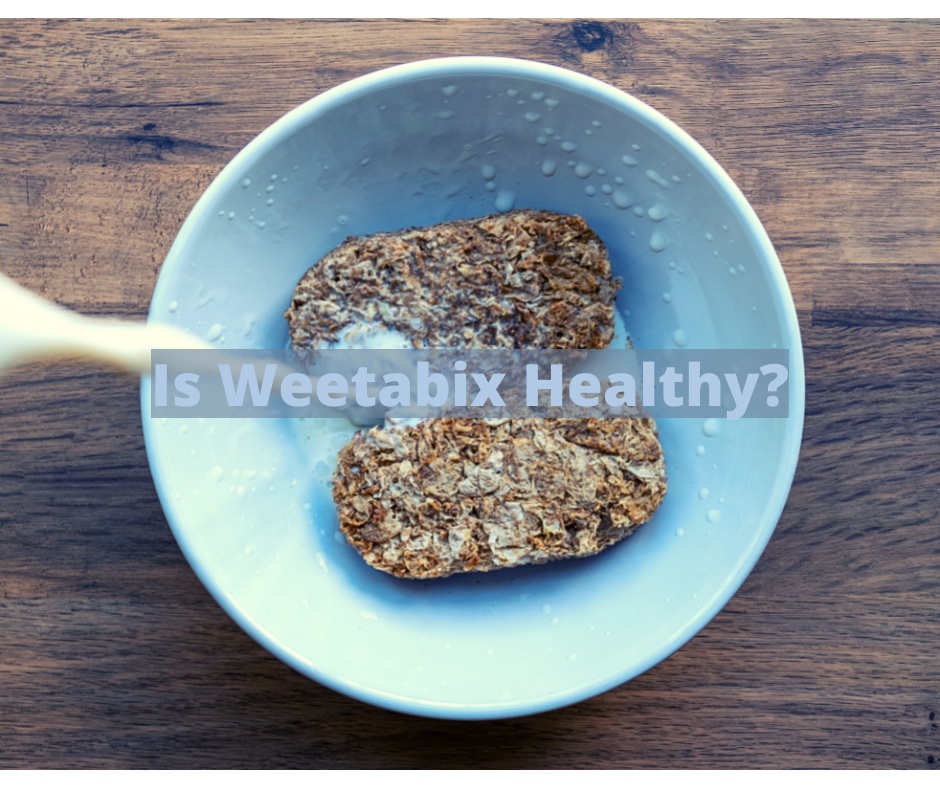
 Vegan3 months ago
Vegan3 months agoIs Weetabix Healthy? 14 Things You Should Know
-

 Vegan3 months ago
Vegan3 months agoVitamin B12 Vegetarian and Vegan Sources
-

 Vegan3 months ago
Vegan3 months agoJack in the Box Offers Vegetarian and Vegan Options
-

 Vegan3 months ago
Vegan3 months agoHow to Tell If Your Eggplant is Going Bad by Looking at the Color on the Inside
-

 Vegan3 weeks ago
Vegan3 weeks agoCelery and Pineapple Juice Benefits
-

 Vegan3 weeks ago
Vegan3 weeks agoCelery and Carrot Juice Benefits






